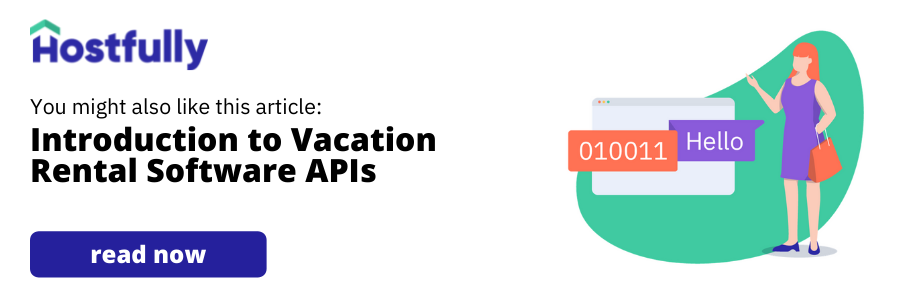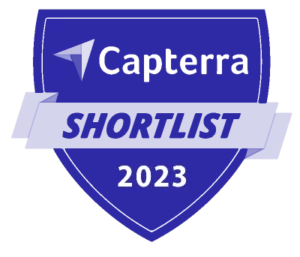There is a lot of due diligence that goes into shopping for the best vacation rental management software. Most websites make big promises, oftentimes similar to one another. This makes choosing the right software company difficult. On top of that, most solutions charge a sign up fee which might make you think twice if you’re making the right choice. And if you decide to switch to a competitor after a few months, there can be disruptions to your bookings and operations. So how does one separate the wheat from the chaff? Luckily, there is a quick and easy way to determine if the vacation rental software you’re looking at is worth the time and money.
Introducing “partner statuses”
Big listing sites like Airbnb, Vrbo and Booking.com are quite open about software companies they believe have a great product. To do this, they have tiers of partnership and go as far as listing the software providers they like working with on their sites.
First, let’s talk about APIs
Listing sites open the back end of their platforms so that software companies (like ours) can create products for hosts and managers. They do this with an API (it’s a code that two software use to talk to one another). If you ever wondered how a property management platform (PMP) can block the calendar on Booking.com and Airbnb if a Vrbo reservation came in, it’s because of API. The Vrbo API sends a message to the PMP’s API, and then the PMP’s API communicates with Booking.com and Airbnb’s APIs with the updated information.
That’s a lot of APIs in action.
The thing is, not all PMP APIs are built the same. There are some built on software industry best practices, and others thrown together as time goes on. To use a non-techie analogy, think of vacation rental software APIs like a cottage that need extensions added over time. Few cottages are built from day one so that grandparents can invite their children and grandchildren. Rather, most start with a small cabin, and as time goes on, extra rooms get added. Some build with a solid foundation and features that will make it easier to build extensions in a few year. Others just cut down and add walls as they go along. It’s no surprise that the latter will be prone to leaks, and will have functionality challenges. It’s the same with APIs. Except this isn’t a question of esthetics. APIs are workhorses. Anything clunky and eventually something won’t run right. When a listing site or OTA gives a software company with preferred partner status, it means a few things:
- They deem the software company has a good tech foundation.
- The integration of both APIs was easy (because of best practices).
- The software company has the capability to stay up to date.
- The software provides functionality that integrates well with the listing platform’s offerings.
Why this matters
It all comes down to thinking long-term and what’s best for your vacation rental business. You’ll find a lot of software solutions out there that offer similar features. But to use a car analogy, it’s what’s under the hood that matters. Ideally, you’ll want your PMP built on programming best practices and that has a team behind it keeping it up to date over the year. When a vacation rental software has preferred partner statuses with the big platforms, you have part of your due diligence done for you.
From the host or manager’s side, choosing a preferred partner software provider will manifest itself several ways:
- Reliability: PMPs have a lot of modules that need to work together. With proper coding, those modules will keep working well together even if one goes through an update. This means less down time and bugs.
- Growth: The PMP provider will be able to build future partnerships quickly. This could translate to more channel options down the road, or the capacity to integrate new innovative software.
- Updates: Preferred partners get a head’s up when a listing site or OTA will update their platform. This way, the PMP provider will have an update ready and on time.
- Access: If you run a large portfolio (or plan on expanding), you may eventually run into a technical issue that will require your PMP provider to reach out to the listing platform. Preferred partners have easier access to listing site support agents. Your issues will be resolved faster.
How to action this
To quickly find out if the software provider you’re looking at has preferred status, check the websites of the main listing platforms:
Not to brag, but Hostfully is one of the few PMPs that has preferred partner status with Airbnb, Vrbo AND Booking.com. We were also the first platform to be selected as a connectivity partner on the Marriott Homes & Villas platform for similar reasons.
Looking past preferred partner status
The odds are that if you’re looking at a top-tier solution (like Hostfully), you’ll see that they are all listed on the same pages. That’s a good sign. It means you’re comparing apples to apples. Here are other features you can look into when performing your due diligence in selecting software:
- Type of service: is the PMP built specifically for the short-term rental industry, or does it also cater to traditional hotel operators?
- Type of customer: look for a PMP provider that has a solution better suited to your company size. A PMP provider that focuses on 100+ listing property clients may not be ideal for a host with 10 properties. Note that some PMPs (like ours) are designed to scale with you as your business grows.
- Awards and other social proof: The benchmark for vacation rental software review is VRMB’s Keynote Awards, and the Shortyz.
- Integrations with the major software providers: All PMP providers have an integration page that shows 3rd party integrations. Make sure your PMP provider supports integrations with what you currently use. That said, it’s not about quantity but quality so check that the company integrates with market leaders.









